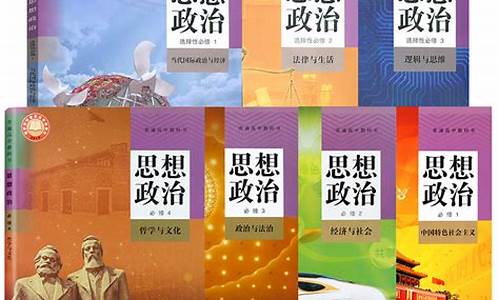您现在的位置是: 首页 > 教育资讯 教育资讯
2017四川高考英语答案解析_四川2017高考英语
tamoadmin 2024-06-11 人已围观
简介1.高考英语阅读理解训练2.如何评价2017年高考全国卷一英语2019年四川高考使用全国Ⅲ卷,即新课标三卷,全国丙卷,丙卷一般比甲卷和乙卷简单一些。但不会因考题差别导致教材差别,一切都是遵照高考大纲命题的。高考后试卷不能拿走,高考试卷会密封后送到指定的阅卷场所,阅卷后的高考试卷属于高考档案的一种,要存档保留一定年限的,考生是无法再次接触到自己的高考试卷的。高考英语阅读理解训练Ⅰ. 1. tutor
1.高考英语阅读理解训练
2.如何评价2017年高考全国卷一英语

2019年四川高考使用全国Ⅲ卷,即新课标三卷,全国丙卷,丙卷一般比甲卷和乙卷简单一些。但不会因考题差别导致教材差别,一切都是遵照高考大纲命题的。高考后试卷不能拿走,高考试卷会密封后送到指定的阅卷场所,阅卷后的高考试卷属于高考档案的一种,要存档保留一定年限的,考生是无法再次接触到自己的高考试卷的。
高考英语阅读理解训练
Ⅰ. 1. tutor 2. original 3. upset 4. argued 5. pushy
6. enough 7. style 8. matter 9. compare 10. complained
Ⅱ. 11. surprises 12. except 13. fail 14. pressure 15. compare 16. don’t have enough money 17. what should I do/what to do next 18. ask your teacher for help 19. argue with each other for money 20. from a young age
Ⅲ. 21. more 22. sandwiches 23. was invited 24. interested 25. dancing 26. different 27. friend’s 28. to buy 29. really 30. carefully
Ⅳ. 31. D 32. A 33. C 34. A 35. D 36. A 37. A 38. B
39. C 40. D 41. B 42. A 43. A 44. A 45. C
Ⅴ. 46. do you 47. doesn’t need any 48. the same age as 49. should not , either 50. what to do
Ⅵ. 51-55 C B A D B 56-60 B A D A D
Ⅶ A. 61-65 A A D A C B.66 friends 67informtion 68quickly 69eyes 70correctly
如何评价2017年高考全国卷一英语
高考英语阅读理解精品训练2017
近几年高考英语阅读主要有猜测词义、理解主旨大意、推理判断、对文章的细节理解、 数据推算等几种题型。为了帮助大家备考高考英语阅读理解题,我分享了一些高考英语阅读理解练习,希望能对大家有所帮助!
阅读理解练习1
Not many years ago, a wealthy and rather strange old man named Johnson lived alone in a village in the south of England. He had made a lot of money in trading with foreign countries. When he was seventy?five, he gave ? 12,000 to the village school to buy land and equipment (设备) for a children?s playground.
As a result of his kindness, many people came to visit him. Among them was a newspaperman. During their talk, Johnson remarked that he was seventy-five and expected to live to be a hundred. The newspaperman asked him how he managed to be healthy at seventy?five. Johnson had a sense of humour (幽默). He liked whisky (威士忌酒) and drank some each day. ?I have an injection (注射) in my neck each evening.?he told the newspaperman, thinking of his evening glass of whisky.
The newspaperman did not understand what Johnson meant. In his newspaper he reported that Johnson was seventy?five and had a daily injection in his neck. Within a week Johnson received thousands of letters from all over Britain, asking him for the secret of his daily injection.
1. Johnson became a rich man through
A. doing business. B. making whisky. C. cheating. D. buying and selling land.
2. The gift of money to the school suggests that Johnson
A. had no children. B. was a strange man.
C. was very fond of children. D. wanted people to know how rich he was.
3. Many people wrote to Johnson to find out
A. what kind of whisky he had. B. how to live longer.
C. how to become wealthy. D. in which part of the neck to have an injection.
4. The newspaperman
A. should have reported what Johnson had told him.
B. shouldn?t have asked Johnson what injection he had.
C. was eager to live a long life.
D. should have found out what Johnson really meant.
5. When Johnson said he had an injection in his neck each evening, he really meant that
A. he liked drinking a glass of whisky in the evening.
B. he needed an injection in the neck.
C. a daily injection in the evening would make him sleep well.
D. there was something wrong with his neck.
阅读理解练习2?I?m very tired from working here,?said Jean to her friend Kate,? I?m on my feet from morning to night. For the first quarter of the day, I clean up the counter (柜台) and set the tables. For the next quarter, I help in the kitchen. For the second half of my workday, I take orders at the counters.?
?Kate, I wish I had your job,?Jean went on. ?For four hours you just sit at the cash register (收款台) taking in money.?
?But I spend two more hours in the kitchen (厨房) than you do,?said Kate. ?It?s tiring to cook over a hot stove. I don?t think you?d really want my job. In fact, I?d like your job.?
1. Both Jean and Kate probably work in a
A. hotel B. library C. lab D. shop
2. How long did they work every day?
A. eight hours B. twelve hours. C. Ten hours D. Nine hours
3. How long did Kate spend in the kitchen?
A. a quarter day. B. A half day. C. One-third day. D. Three-fourths day.
4. From this passage we can see that
A. they are both interested in their work. B. their work is neither tiring nor busy.
C. both of them are tired of their work. D. they?ve decided to give up their work.
5. Give a proper proverb (谚语) to Jean and Kate.
A. It?s never too late to learn.
B. It?s no use crying over spilt milk.
C. The grass is always greener on the other side.
D. One swallow(燕子) does not make a summer.
阅读理解练习3In 1985 a French television company sent its reporters to the Paris Metro. They took cameras to see what passengers would do if they saw someone attached on the platform or in the trains. They acted out incidents. The incidents looked real but they were all done with the help of actors. However, very few people tried to help, and most passengers pretended not to notice. in one incident, a foreigner was attacked by three men. The attack was on a train which was quite full, and although one man tried to get the passengers to help, they all refused. It seems that such behaviour(行为) is not unusual, but the question is why? Is it a problem of big cities, or would the same thing happen anywhere? To discuss these questions, we have in the studio(演播室) Professor Wilson, who is an expert on the subject?
1. Who did the experiment?
A. A French television company. B. The Paris Metro.
C. The City Government of Paris. D. Professor Wilson.
2. What did the experiment try to find out?
A. How a foreigner was attacked on the train.
B. How passengers helped each other on the platform.
C. Passengers? reactions towards incidents.
D. Actors? performances during incidents.
3. What was the finding of the experiment?
A. Passengers helped a lot during incidents.
B. Very few foreigners were on the train.
C. Very few passengers tried to help during incidents.
D. Some people were good at acting on the train.
4. Who do the underlined words one man refer to?
A. One of the three men who attacked a foreigner.
B. One of the actors who took part in the experiment.
C. One of the passengers who were on the train.
D. One of the reporters who were sent to the Paris Metro.
参考答案:
1A 2 C 3 D 4 D 5 A
1A 2 A 3 B 4 C 5 C
1D 2 C 3 C 4 B
;一是选材丰富多用,渗透中外文化,助力文化品格培养,倡导科技,培育学生的情怀和国际视野,落实立德树人任务,体现学科核心素养的渗透。此次全国卷1高考英语试题的素材选材符合真实性强、时代性强、题材广泛、体裁多样、语篇典型、难度适合的原则。体裁覆盖了记叙文、说明文、议论文和应用文等四大文体。选用的语篇材料社会生活、历史文化、科普知识、饮食等,均和学生生活紧密相关。具体话题包括宣传手册(阅读A,介绍Pacific Science Center)、个人情况(阅读B,在野生动物救援和教育组织工作)、艺术与传承(阅读C,爵士乐)、科普知识与技术(阅读D,自制蒸馏器)休闲生活(七选五,露营体验)、学校生活(完形填空,在学校学习美式手语的事情)、饮食与健康(语法填空,在饮食中不能过少或过多摄入脂肪和盐分,两种情况对健康都不好)、难忘经历(短文改错,生日后假期学车时的紧张心情)、传统文化推广(写作,教朋友Leslie学习汉语、唐诗)等话题,具有丰富的人文内涵、现实意义和育人价值。
二是倡导语篇能力,对语言知识运用、阅读理解及写作能力的考查均在语篇层次进行,注重综合运用能力的考核。各部分的任务兼顾真实性、实用性和趣味性,高度考查了学生的运用语言分析和解决问题能力。问题设置力求典型、规范,各部分考点设置分布合理,难度搭配适当,较全面地考查了学生应当掌握的基本语言技能以及各语言技能中包含的具体语言运用能力。命题语言(题目与选项)具有一定的难度,需要学生具有较高的解读(paraphrase)能力,能够反映一直以来高考全国卷的变化趋势。七选五侧重于对学生理解文章结构即文章内容连贯能力的考查,要求学生具有较高的语篇分析能力。
三是写作任务真实。2017高考英语写作是给朋友写信告知下次上课计划,题材是学生平时生活和学习中所熟悉的,又是学习和生活中用得上的,有很强的实用价值;同时具有很强的生活气息,突出了在生活中使用英语传递信息的必要性和真实性,充分体现了用英语做事的教学理念:将来无论在国内大学或者国外深造,导师与学生在很多时候都是采用email联系、交流、布置任务。
语篇材料生词量与阅读量控制得当。2017年全国卷1阅读理解部分的总词量为1894词,文本长度为1436词,与2016年全国卷相比,要求接近(全国卷2007~2016年阅读理解总词量在1800~2000词之间,文本长度在1300~1400之间;其中全国1卷阅读理解长度为1914词,文本长度为1309词)。
完形填空考查学生在篇章层面综合运用背景知识、语言知识和逻辑判断等手段进行意义补全的能力,重点考查实词的用法。要求学生在掌握文章主旨大意和正确理解句与句、段与段之间的内在联系的基础上,准确判断动词、名词、形容词、副词等的意义和作用,语篇层面的考查要点占较大比例。
语法填空考点设置符合考纲要求以及课程标准所倡导的语言学习理念,在语篇层面上考查对语法知识掌握和应用的情况,不仅关注语言基础的词法和句法考查,还重视对语篇逻辑和意义连贯的判断,符合语言真实性的要求。与2016年全国卷1考点相比,此次没有考副词和代词,适当增加了主谓一致和形容词比较级,难度基本持平,答案保持了最大限度的唯一性,信度较高。
短文改错考点设置均为高中阶段学生学习英语过程中常犯的错误类型及项目,考点与考试大纲的样题及近年高考全国卷的考点相一致,对于词法、句法和行文连贯的考查分布合理,重视学生对于语篇的整体理解和逻辑判断。与2016年全国卷1考点相比,适当增加了序数词的考查。
书面表达对于部分写作内容有所限定(如学习内容和课前准备),以保证评分的效度,但对于时间和地点给予了半开放,对学习汉语、唐诗等的意义这些拓展则不作内容规限,保持一定开放性。写作任务对学生运用背景知识,合理拓展写作内容的能力要求比较高,任务能够充分考量学生就话题所表达内容的思想性、合理性和丰富度。









